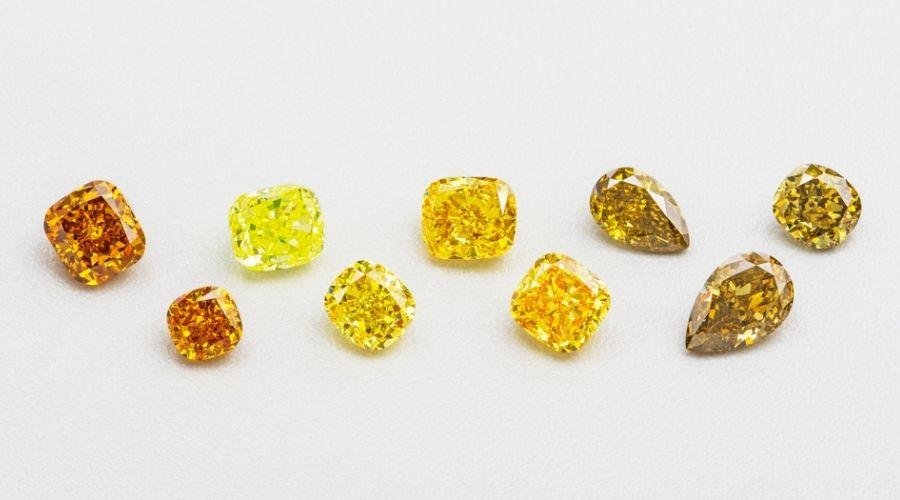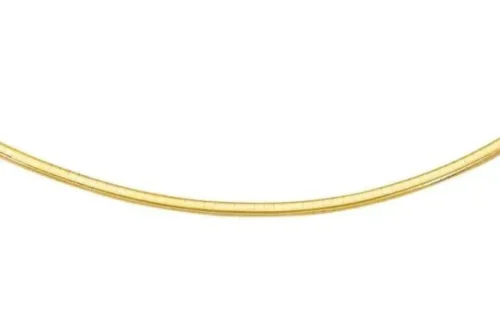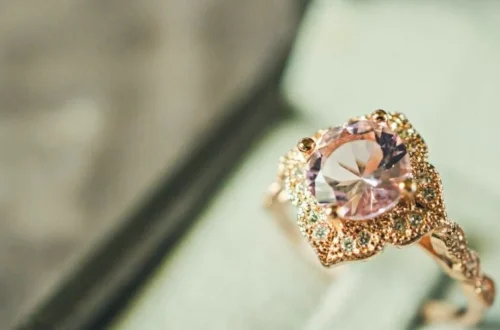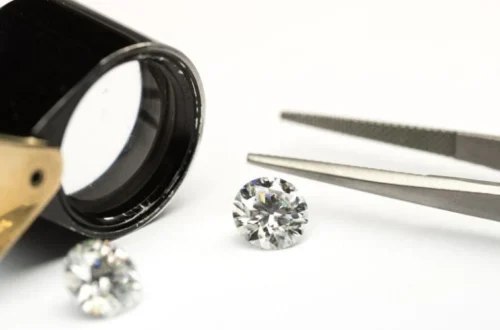
A Guide to Colored Stones: List of the Most Popular Brown Gemstones
- November 12, 2025
- 2679
Brown is not a common color for jewelry. Traditionally, brown gemstones were considered dirty, impure, or defective. For this reason, many jewelers forwent using any kind of brown gemstone.
Recently, brown gemstones have seen a significant rise in popularity regardless of gender. There has been a shift away from prioritizing gem type and towards prioritizing gem color.
People are no longer looking for the purest, highest karat diamonds. Instead, they seek out bold and unique colors that make a statement. While traditional jewel tones are still quite popular, there has been a shift towards more neutral and subtle gems.
As a color, brown is warm and welcoming, related to earth and nature. In jewelry, brown has come to represent people who are centered and down-to-earth. Keep reading to learn more about the best brown gemstones to use in your jewelry.
Most Popular Brown Gemstones
Andalusite

Andalusite is a beautiful brown gem with pleochroism, which means it reflects different colors depending on the lighting and angle. Andalusite comes in many varieties and colors, anywhere from opaque to almost transparent.
While andalusite is not generally expensive, more transparent varieties can be quite pricey. One of the best things about andalusite is just how many color varieties it comes in. No two stones will ever look the same.
Axinite

Axinite is a rare stone with beautiful clarity and a vitreous luster. It is generally transparent and comes in blue, brown, and violet varieties.
Axinite has rare pyroelectric and piezoelectric characteristics, meaning it can generate an electric current under extreme heat, cold, or pressure.
Brown Citrine

Citrine is the second most popular quartz gem after amethyst. It forms when purple amethyst or smoky quartz is heated. This process can occur naturally or through heat-treating.
Natural brown citrine is yellow or yellow-orange, while synthetic stones have a red-brown or red-orange tone. Natural stones are also much lighter and more transparent than synthetic brown citrine.
Brown Diamond

Brown diamonds are among the most affordable varieties of diamonds. As 15% of all diamonds mined are brown, they are usually easy to find and inexpensive. Almost 80% of the diamonds mined in Australia’s Argyle mine were brown.
Before closing in 2020, the Argyle Diamond Mine was one of the most productive diamond mines in the world. It is currently unclear how this will affect the production of brown diamond jewelry.
Brown Topaz

Brown topaz is a lovely hard stone that most often boasts a light yellow or honey color. It is usually cut in a teardrop, oval, or round shape to enhance its fiery reflections. Still, it can look just as stunning in square or rectangular cuts.
Brown Tourmaline

Brown tourmaline has deep red and chocolate tones in opaque varieties. More transparent varieties have a dark yellow color. Like andalusite, tourmaline has pleochroism and, as such, can appear to hold many different colors when viewed from different angles.
Cat’s Eye Apatite

Cat’s eye apatite is a soft gemstone that exhibits a chatoyancy, or cat’s eye, effect. Brown is the most common color for a cat’s eye apatite, but the real value lies in how bold the chatoyancy is. The more obvious it is, the more expensive it will be. Jewelers always use an en cabochon cut to best showcase this unique feature.
Chocolate Opal

Chocolate opal is a stone that, while appearing an opaque brown, also reflects the entire light spectrum. These delicate stones are untraditional, but their beauty lies in their unique appearance and the flashes of color they offer.
Color Change Garnet

Color change garnet is a rare form of garnet produced from a mixture of spessartite and pyrope. While it comes in many colors, a common variety is a brown-green or copper that looks red-orange or rose under incandescent lighting.
Enstatite

Enstatite is a soft stone rarely found in gemstone quality. It’s commonly brown or yellow-green but can be transparent or even gold if it contains iron deposits. Enstatite is delicate but has a very high melting point.
Fire Agate

Fire agate is a rare variety of quartz. It is not common in jewelry, and the difficulty of cutting and shaping the stone makes it quite expensive.
As the name implies, fire agate is a brown translucent stone that reflects fiery reds, oranges, and even yellow golds are.
Golden Beryl

Golden beryl is one of several varieties of beryl. Other gems in this category include emerald and aquamarine. Golden beryl is much cheaper and easy to find. It is transparent to translucent and has a lemon yellow color.
Hessonite Garnet

Hessonite garnet is a very reflective stone with a deep red-brown color. The color is thanks to manganese deposits. Hessonite garnets come in a variety of shades and can be transparent to translucent.
Hessonite garnet is a variety of quartz and is quite hard. Many also know it as the “cinnamon stone.”
Jasper

Jasper is one-of-a-kind in many ways. Most notably, it doesn’t look like other crystals. It is opaque and has a striped or mottled look that makes it appear like a rock. Jasper is composed of up to 20% foreign minerals, such as clay or hematite. The foreign inclusions mean jasper comes in a wide variety of colors.
Mahogany Obsidian

Mahogany obsidian is a relatively soft stone that boasts a beautiful black and red-brown splotchy pattern. Some have a striped pattern instead.
When lava cools rapidly, it forms obsidian. It has many earthy properties, so it’s common in bohemian jewelry.
Mali Garnet

Mali garnet is a somewhat new stone, first recorded in 1994. It can be anywhere from transparent to opaque and comes in brown, gold, or lemon-yellow. Rare green Mali garnet is the most valuable. It is very refractive and has high dispersion, making it shimmer like no other.
Rutile Quartz

Rutile quartz gemstones are some of the most versatile. Like most quartz, they are affordable and very durable. While the quartz is transparent, the rutile inclusions are usually golden brown. The more rutile there are, the browner the stone will look.
The lines of color through the quartz give each stone a unique appearance and make for a lovely intricate design.
Sillimanite

Sillimanite comes in two main varieties: transparent sillimanite and cat’s eye sillimanite. Transparent sillimanite is usually chartreuse and is quite rare. Cat’s eye sillimanite, on the other hand, is opaque and is a very dark brown.
Cat’s eye sillimanite resembles cat’s eye apatite with a few key differences. It is much darker in tone, is more opaque, and has a higher contrast between the cat’s eye and the rest of the stone.
Smoky Quartz

Smoky quartz is a common and affordable gemstone with a wide variety of colors and opacities. Smoky quartz ranges from nearly black to barely brown. It’s common in costume jewelry because of its durability.
Smoky quartz is an affordable alternative to brown diamonds as it bears a resemblance to cognac diamonds.
Sphalerite

Sphalerite is the stained glass of gems. These delicate stones reflect and refract light in dazzling ways. Sphalerite is usually a fiery red tone but can have brown, orange, yellow, or even green and blue tones.
The depth and shine of sphalerite is breathtaking. Unfortunately, this gem is primarily a collectors’ piece due to its softness.
Tiger’s Eye

Tiger’s eye is a well-known and easy-to-find gemstone revered for its brown and gold rings. While most tiger’s eye is opaque, there are translucent varieties. Thanks to the unique structure of the chatoyancy, every gem displays different patterns.
Tiger’s Eye is durable enough to be used for jewelry. You will often find it cut en cabochon to highlight the cat’s eye effect.
Zircon

Many think of zircon as a cheaper diamond substitute; however, it has many unique properties all its own. Zircon comes in many colors, some of which contain radioactive elements. It is a bright and reflective stone with beautiful reflections and a long history.
Best Matches for Brown Gemstones
Brown Gemstones and Metals
Brown gemstones compliment every metal setting. Medium browns found in diamonds look classy and refined set in gold. Citrine and topaz enhance the lightness of silver and create a regal look. While often overlooked, rose gold can enhance the look of a brown gem. Anything with redder tones especially, like color change garnet, looks fabulous and unique in rose gold.
Unlike most jewel tones that contrast with metals, brown gems often work in tandem with metals. Their neutral shade enhances both the metal and the gemstone.
Brown Gemstones and Skin Tone
Brown gemstones come in so many shades that they can suit any skin tone. While browns tend to go best with warm skin tones, many shades such as honey, amber, and smoky brown look just as lovely on cool-toned skin.
The best part about brown gems is that, as a neutral color, they look nice on everyone. As long as you like the way your jewelry looks on you, that’s all that matters.
Where and How to Buy Brown Gemstones
Regretfully, brown gemstones have not become mainstream yet and may be difficult to find in physical stores. Some jewelers may carry high-end brown gems like diamonds, and individual artisans may stock unique stones. Still, the easiest place to find a wide variety of brown jewels is online.
Online stores provide more options for customers looking for the perfect color, durability, shine, and shape. The rise of e-commerce means you can find the perfect look. Brown gemstones add a unique look to any outfit and make a one-of-a-kind addition to any jewelry collection.
Categories
NEW POSTS
November 24, 2025
Diamond Bracelets for Ladies – Your Guide to Sparkling Wrist Wear
November 24, 2025
Omega Necklaces Trend – Your 2025 Guide to Chic Neckwear
November 12, 2025






